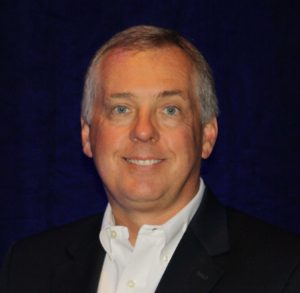Description

ISCPA & ACFE Boise Chapter are once again working together to bring you an outstanding 2024 Fraud Conference ...
Never Too Clever 2B Detected Fraud can hurt businesses and your clients in a big way. Whether you work in public accounting, industry, or government, this year's conference will provide you with the tools to help you implement consistent controls and policies to protect against fraud without damaging the trust at the center of your company's culture.Designed For
Objectives
- Understand confirmation bias & clinical reasoning
- Learn interviewing techniques
- Learn about cyber risk tools
- Discover what reasonable cybersecurity is and isn't
- Explore the ethics of emerging technologies
- Understand Forensic lexicology
- Identify fraudulent documents
Highlights
November 7 - Darrell Dorrell - The Art & Science of Investigating People & Money©
A Forensic Analysis of the Financial Statements of the United States of America©
- Analyzes and critiques the US Government's audited balance sheets, income statements, cash flow statements, footnotes, and ancillary reporting of the financial documents intended to reflect the United States Government for the last ten (10) fiscal years ended September 30, 2023.
- Attendees will gain greater understanding of the USA's financial strengths, weaknesses, performance, outlook, and related indicators that apply to their own clients and personal circumstances. That will enhance their abilities to make client and personal decisions with respect to taxation, voting and related matters into the future.
Forensic Lexicology: "How to Quantify Words©"
- Forensic lexicology is the study of words and vocabulary and how they are used. The techniques exploit humans' natural tendency to speak and write reflecting one's "linguistic fingerprint". The techniques analyze virtually any spoken and/or written discourse including financial statement notes, interviews, emails, depositions, reports, and patterns that assess veracity, authorship, consistency, and other attributes that are deployed in civil, criminal and counterterrorism matters.
- After this session you will never observe, talk with, or listen to anyone the same way. Likewise, you will never read financial (or other) information in the same way. You will learn how spoken and written words permit you to assess veracity - financial or otherwise. Participants will leave the session armed with specific tools and techniques immediately applicable to their assignments.
Clinical Reasoning - A Structure to Avoid Confirmation Bias
- The human tendency that, after forming a viewpoint, one seeks and assimilates reinforcing data, and rejects rebutting data.
Foundational Behavior Detection & Facial Mapping
- Interviewing/Interrogation methods, i.e. stress-induced physiological responses that indicate deceit or hidden agendas. The Concentric-In component starts conceptually with a very wide circle encompassing the subject company's and parties' business footprint and progressively becomes focused on the site.
- The Concentric-Out component starts conceptually with a very narrow circle encompassing the subject's eyes, and progressively expanding to include the forehead and temples, face, throat, shoulders, upper diaphragm and torso. Then, it starts conceptually again with a very narrow circle encompassing the subject's feet, and progressively expanding to include the legs, knees, thighs, and lower midsection.
How to Identify Potentially Fraudulent Documents Without Scientific Tests
- Questioned Document Examination (QDE); Fake, Altered or Borrowed (FAB) techniques.
Forensic Financial Analysis
- The composition of the data, that is, the items that compose the data set.
- The boundaries of the data to yield understanding of relative size.
- The central tendencies of the data to identify data clustering.
- The dispersion of the data to identify variation from central tendencies.
- The dynamics of the data to identify the rate of change in the data.
- In its most basic sense, forensic financial analysis (or forensic data analysis) seeks aberrations or variability in the data. Variability is important because, all other things being equal, the data created and resulting from business operations should behave in a predictable manner. In the most simplistic sense, variable expenses vary with revenue, while fixed expenses vary only over the long run.
November 8 - Tommy Stephens - Using Technology To Your Advantage
K2's Case Studies In Fraud And Technology Controls
- Fraud plagues businesses at epidemic levels, and technology control failures are a major contributing factor. Using a case study approach, you will learn about the pervasiveness of fraud, the control failures that contribute to fraud, and what you can do to mitigate fraud risk. A specific focus of this course is the application of information technology general controls and information technology application controls. In this course, you will examine numerous reported fraud cases and identify the general control and application control failures that contributed to each fraud. By learning through these real-world case studies, you will be better positioned to reduce fraud risk.
K2's Ripped From The Headlines - Outrageous Tales Of Cybercrimes
- Cybersecurity threats remain a top-of-mind concern for all business professionals. Participate in this session to learn more about today's risks and, more importantly, what you can do to minimize your exposure.
- Remote work environments have created many new opportunities for cybercriminals and other fraudsters to exploit, and accounting professionals are some of the most commonly targeted individuals. This session is a series of case studies that examine actual criminal filings and news accounts and use them to highlight some of the actions you can take to limit your exposure to similar schemes. Attend this session and learn more about how high-profile control failures occurred so you can be more effective at preventing crimes in your organization.
K2's Ethics and Emerging Technologies
- Today's technologies - including Artificial Intelligence (AI) - offer great promise for improving productivity and efficiency. However, there are risks associated with these tools, including security, privacy, and protecting intellectual property. Against that backdrop, how can we reap the benefits of these tools, while acting ethically and responsibly.
- In this session, you will learn more about how you and your team can use today's technologies ethically, effectively, and responsibly. You will learn about some of the risks associated with modern technologies, how to manage these risks, and effective business practices associated with using technology responsibly and ethically.
Advanced Prep
- Download PDF manual - view your upcoming events in "My CPE" on website
- Review Parking Map - found in your email confirmation
Register Now
Leaders
Thomas Stephens

Thomas G. Stephens, Jr., received a Bachelor of Science in Business Administration degree (Major in Accounting) from Auburn University in 1985. Upon graduation, Mr. Stephens began working for an Atlanta-based public accounting firm. After earning his designation as a Certified Public Accountant, Mr. Stephens worked for BellSouth Corporation in Atlanta as an Internal Auditor. After two years as an auditor, he was promoted to Staff Manager and then Operations Manager of the Internal Audit Group. In 1991, he transferred to the Comptrollers' department of BellSouth and served as Manager of the Cost Accounting organization. While working full-time at BellSouth Corporation, Mr. Stephens also attended graduate school, earning a Masters of Science (Major in Finance) from Georgia State University in 1992.
Darrell Dorrell
Darrell D. Dorrell CPA/ABV, MBA, ASA, CVA, CMA, DABFA
Darrell is a forensic accountant specializing in the determination, investigation, restatement, analysis, interpretation, forecasting, feasibility, translation and visualization of complex financial and operational data.
He has served as an expert witness/consultant in more than 500 matters. Typically, he applies such expertise within various Federal and state courts in connection with complex forensic accounting, civil litigation, criminal investigation, valuation and troubled businesses. The matters include alter ego, anti-trust, bankruptcy, breach of contract, estate and gift taxes family law, fraud, fraudulent conveyance/transfer intellectual property, lost profits, patent, solvency/insolvency, trademark, trade dress, and trade secrets, among others.
He is nationally recognized within his profession as a speaker and author, and has delivered more than 100 addresses to many national bodies on financial topics including the Federal Bureau of Investigation (FBI), United States Department of Justice (USDOJ), Bankruptcy Bar Association, American Institute of Certified Public Accountants (AICPA), National Association of Certified Valuation Analysts (NACVA), the Oregon and Washington bars, PriceWaterhouse Coopers, Institute of Management Accountants, SEAK, CPAA International, Inc., AGN, Inc., the National Litigation Support Services Association (NLSSA), Turnaround Management Association, and the California, New York, Oregon, Pennsylvania and Washington Society of CPAs, among others.
He has published more than 50 articles in the American Journal of Family Law," Business Appraisal Practice, CPA Journal, Journal of Accountancy, "Litigation Counselor," the "National Litigation Consultants Review," Valuation Examiner, RIA's Valuation Strategies, and the United States Attorneys' Bulletin. Also, he has been cited in Bloomberg Wealth Manager, Business Week, IR Magazine, the Portland Oregonian and the Practical Accountant.
He is a partner in a highly specialized forensic accounting practice, financialforensics® based in Lake Oswego (Portland), OR. The practice serves clients in many states throughout the US. His experience includes more than 35 years of very complex and highly specialized financial guidance for a wide variety of businesses and industries ranging from Fortune 500 through one-person operations.
He continues to teach adult students at 3 Portland universities since 1989 is privileged to have received the "Graduate Faculty of the Year" award for 2000.
